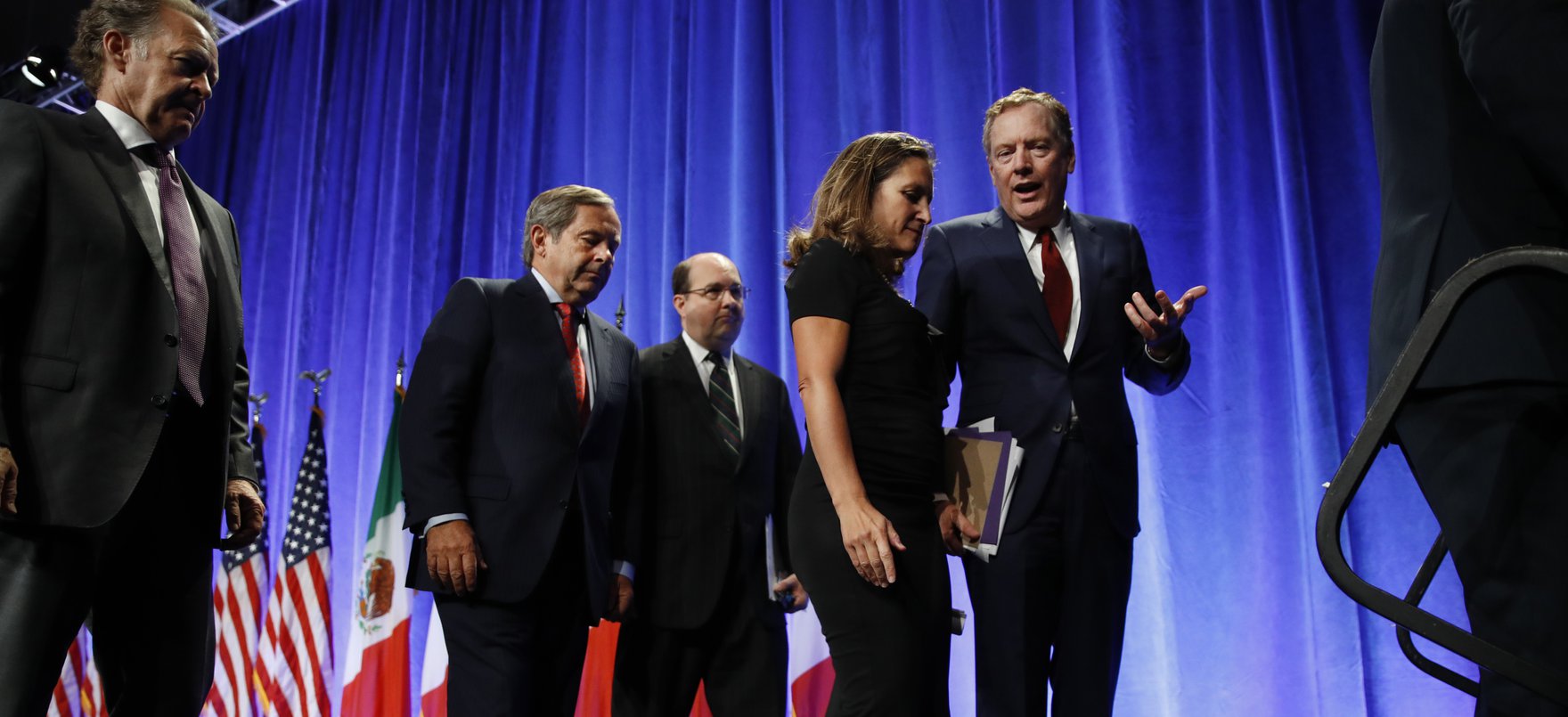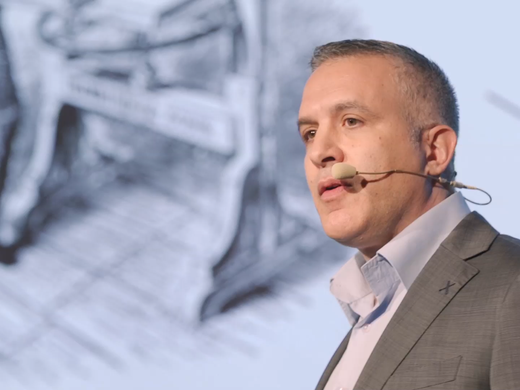Innovation made international headlines in 2017, from the Canadian “innovation budget,” to the development of innovative trade measures. The pervasiveness of the term is no accident though, it reflects a growing demand for innovative global governance solutions.
CIGI made substantial contributions to meeting that demand this year. Fellows and experts alike contributed to a number of special reports, essays and multimedia series that offer new perspective and policy recommendations on intellectual property, trade, climate governance and the role of multilateral institutions.
Research
The Knowledge-based and Data-driven Economy: Quantifying the Impacts of Trade Agreements
There is a serious gap in Canada’s ability to form evidence-based trade policy for the knowledge-based economy — which presents a serious problem as Canada embarks on negotiating a number of multilateral and bilateral trade agreements. In this paper, Senior Fellow Dan Ciuriak argues for a quantitative framework to assess how Canadian trade policies impact the ever-growing data-driven economy.
NAFTA 2.0 and Intellectual Property Rights: Insights on Developing Canada’s Knowledge Economy
The renegotiation of the North American Free Trade Agreement opened the door to new thinking on intellectual property in trade. In this special report, authors provide important recommendations to support the development and growth of an innovation economy in Canada with respect to the copyright system, the patent system and Canada’s geographical indications rules.
Illegal Designs? Enhancing Cultural and Genetic Resource Protection through Design Law
A decade ago, the requirement to disclose the origin of traditional cultural expressions, traditional knowledge, and biological or genetic resources used in creating a design was virtually unheard of in national or regional protection systems. In this paper, Senior Fellow Margo A. Bagley discusses the implications of cultural misappropriation and how some developing countries have begun exploring means of protecting traditional knowledge and genetic resources.
Opinion
Why the $125-billion Stimulus Fund Must Include Digital Infrastructure
Governments from the advanced industrialized world are struggling with a common challenge: anemic economic growth rates with limited monetary, fiscal and other policy levers left in their tool kits to kick-start meaningful growth. In this essay, Neil Desai, a fellow at the Munk School of Global Affairs, argues that productivity gains from the labour market alone likely cannot create the growth required for rich countries to maintain their current standards of living.
How Trolls Are Stifling Innovators, Gamers and Netflix Junkies
While some have argued that innovation is best facilitated by more restrictive copyright rules, experience increasingly points to the need for greater flexibility in copyright to allow for innovation to flourish. In this essay, Michael Geist, Canada Research Chair in Internet and E-commerce Law at the University of Ottawa, writes that Canadian copyright law lacks the flexibility needed to support new creativity and innovation.
Populism and the Global Governance of Intellectual Property
Social media, as a new commons, has dramatically shifted the arena of politics and, in particular, the process of policy discussion and the setting within which policy is created. In this essay, Jesse Hirsh, a researcher, artist and data scientist, explains why this new setting calls for more inclusive, accessible and engaging approaches to intellectual property and public policy.
Multimedia
Benjamin Bergen on How to Create an Innovation Economy in Canada
In the innovation economy, governments that help high-growth companies address roadblocks will see the greatest economic dividends. In this video, Council of Canadian Innovators Executive Director Benjamin Bergen explains how Canadian technology firms attempting to scale up globally need a strong relationship with government to build the dynamic environment in which they can thrive.
Leah Lawrence on Cleantech Innovation in Canada
Canada has the desire and the potential to solve the world’s most intractable cleantech challenges, but there is much to do and time is limited. In this video, Leah Lawrence, president and CEO of Sustainable Development Technology Canada, explains that the first steps include mobilizing entrepreneurs to create and deploy innovation.
Traditional Knowledge Belongs in Progressive Trade Policy
In this podcast, former CBC and BBC Radio Host Mary Ambrose sits down with post-doctoral fellows Marsha Cadogan and Oluwatobiloba (Tobi) Moody, for a conversation about how the renegotiation of the North American Free Trade Agreement offers a chance to protect traditional knowledge and create a discussion about the multi-billion-dollar business of trading in protected agricultural produce and foodstuffs.



